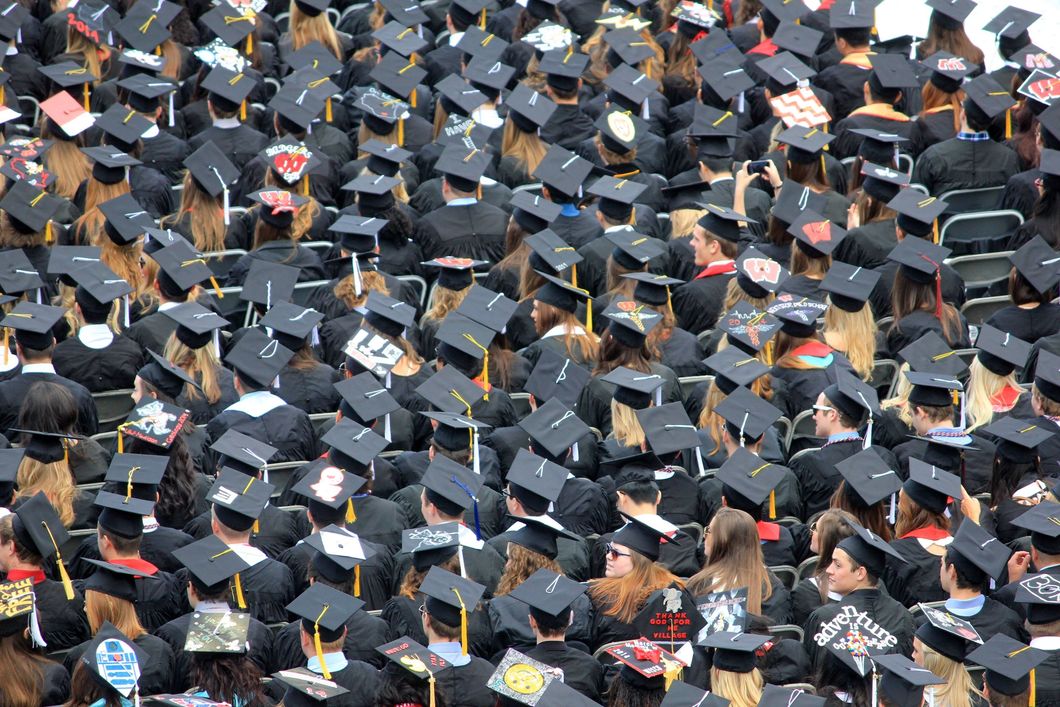From age 9, I have been enrolled in private schools. At these two institutions, college was an ever-present conversation. A lot of our parents, teachers, and administrators expected nothing less than admission to "highly selective" and "prestigious" universities; anything other than "prestigious" generated both shame and gossip. My brother's classmate, for instance, were admitted to Southern Utah University (which he later attended). His admissions decision was met with extreme criticism from all grades--whispers of his stupidity and statements of "how embarrassing" it was for him to matriculate to a school like that were widely disseminated around the high school, middle school, and (in some extreme cases) lower school.
Kids in our generation are under immense pressure. This pressure is facilitated by decreasing admissions rates and increasing standards for admission. Most of my peers in high school ran clubs, created businesses, and obtained internships. The majority of my high school received 3-4 hours of sleep every night, and in general, an overwhelming amount of my peers suffered from anxiety or depression.
Where does this pressure stem from? Mostly, it can be traced back to the issue of college, parental expectations, and societal values.
When I was a junior in high school, I remember meeting with my college counselor and parents. He asked me my top schools, and after hearing my answers, he let out a sigh of relief. "Finally, a student who is realistic."
Most parents, I later learned from my counselor, groom their children to aim for the Ivy Leagues and other selective liberal arts colleges. This mindset supports an attitude that prioritizes clout over best fit which is inherently problematic for students.
The Ivies are notoriously competitive. These low acceptance rates sometimes push students (and parents alike) to seek desperate (and often illegal) measures. For a particular group of rich, lifer students at my high school, things like paying older students to take online college courses, cheating on the SATs and ACTs, and participating in other malpractices were unspoken norms. This blatant issue created a divide between us--the normal, middle-class students--and them--the elite with massive amounts of money. As college decisions rolled out last spring, many of my peers were angry about certain acceptances since we knew that these admission decisions were based on money, cheating, and legacy--not merit. The growing pressure to attend selective schools creates a temptation amongst America's wealthiest to follow these actions, and it ultimately deters students from matriculating to the schools that best fit their academic abilities.
Moreover, college isn't necessarily everyone's path. Although society advocates for college degrees, some students may choose technical trades or speciality fields that do not require a college education. The overarching conversation about higher education should shift to this message instead: valuing student's happiness and personal interests is more important than attending a "brand name" school. People will be more successful when they pursue fields that make them happy and that appeal to their passions. Regardless of college ranking or field of study, parents should motivate their kids to find schools that fit them best instead of plucking universities off of ranking lists.






















